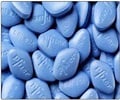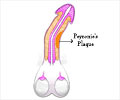Medications taken for various problems such as that of cholesterol, blood pressure or both may not cause erectile dysfunction finds a new study.
Highlights
- Heart medications may not have an adverse effect on erectile dysfunction as popularly believed.
- None of the participants in the study experienced significant change in erectile function after taking cholesterol-lowering statins and blood-pressure lowering candesartan/HCTZ medications.
- Doctors can reassure patients to take these medications to prevent heart complications.
Erectile function was measured using a questionnaire (the International Index of Erectile Function [IIEF] questionnaire) completed by more than 2,000 men at the beginning of the study and again at a mean follow-up of 5.8 years. The IIEF is a validated, 15-item questionnaire to assess five domains of ED over the previous four-week period.
During the study, none of the treatment groups were associated with a significant change in erectile function when compared to their respective placebo groups. Neither blood pressure lowering with candesartan/HCTZ nor cholesterol lowering with a statin showed an impact on erectile function. Importantly, taking these medications were not associated with the development of ED.
"This study shows that lowering these critically important cardiac risk factors using these medications has little impact on changes in erectile function," commented Dr. Joseph. "Men who develop ED while on such medications commonly attribute their symptoms to the medications.
Our findings suggest that these two heart medications do not negatively impact erectile function, which should be reassuring to men who are taking them." This is an important finding because doctors can reassure patients that their ED is almost certainly not related to these medications, which have been well-shown to prevent major complications of heart disease, and encourage them to continue to take them.
"Patients who express concern about ED should be reassured about the lack of impact with statins or the combination of angiotensin receptor blocker/thiazide," wrote G.B. John Mancini, MD, FRCPC, FACC, Professor of Cardiology in the Department of Medicine, University of British Columbia, Canada, in an accompanying editorial.
"But, perhaps, more importantly, they need to be assessed more comprehensively and directed to and instructed in the safe use of phosphodiesterase-5 inhibitors when appropriate and when nitrates are not being used. The current study provides strong motivation for cardiologists to develop confidence and competence in the overlap between the quality of life as reflected by male sexual health and reduction of cardiovascular risk."
Erectile dysfunction (ED) affects about 40 percent of men over 50 years old and is more common in men with cardiovascular risk factors.
Reference
- Philip Joseph, Eva Lonn, Jackie Bosch, Patricio Lopez, et.al. Long-term Effects of Statins, Blood Pressure-Lowering, and Both on Erectile Function in Persons at Intermediate Risk for Cardiovascular Disease: A Substudy of the Heart Outcomes Prevention Evaluation-3 (HOPE-3) Randomized Controlled Trial, Canadian Journal of Cardiology (2018).DOI: http://dx.doi.org/10.1016/j.cjca.2017.09.026
Source-Eurekalert















